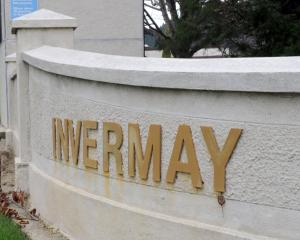An American supplier preferred as a KiwiRail manufacturing supplier over a Dunedin-based company shows the Government's procurement policy is a ''complete sham'', Dunedin South Labour MP Clare Curran says.
Earlier this week, the Otago Daily Times reported Bradken had missed on a contract to supply couplers for KiwiRail's older wagon fleet, resulting in 64 staff moving to a four-day week.
KiwiRail chief executive Jim Quinn confirmed the state-owned enterprise was working with a shortlisted supplier, based in North America, but the contract to produce and supply couplers for the older wagon fleet was yet to be awarded.
''The quality of the production is to our specification and the price this supplier provided was materially better than Bradken's.''
Mr Quinn said Bradken was given an initial contract to supply 800 couplers when it moved to Hillside ''so we could get the production of them started quickly and that work is almost complete''.
The long-term supply contract of the couplers was never part of the work commitment to Bradken negotiated as part of its move to Hillside, he said.
KiwiRail had always been open with Bradken ''that we would be testing the market to ensure we got the best value for money and a quality product to install on the remaining 2000 wagons over the next few years''.
''We will continue to use our finite capital to deliver the best outcome we possibly can to deliver the turnaround of KiwiRail.''
Ms Curran said the decision to source couplers overseas showed Government procurement rules released by Economic Development Minister Steven Joyce in April, and which take effect on October 1, was a ''complete sham, delivering no real benefits''.
''When a state-owned enterprise like KiwiRail is blatantly not calculating whole-of-economy effects over the life of a contract and another major tender goes offshore to the detriment of our local industry, the South needs to ask why.''
Dunedin North MP David Clark said the Government's procurement policy was just ''window dressing'' and should take into account the ''whole-of-economy costs'', which included the extra tax paid by having people employed in New Zealand.
The Government's procurement policy included rules making it easier for smaller New Zealand companies to tender for government contracts and provide better value for money for taxpayers.
At its launch, Mr Joyce announced the policy would shift from who could deliver the lowest upfront costs to who could deliver the best value for money and other direct financial benefits over the life of a contract.
Government procurement accounts for about $30 billion each year.
A spokesman for Mr Joyce pointed out that Ms Curran's proposals would be ''impossible to apply without breaching the trade rules that the Otago region and New Zealand relies on for all its export income and the jobs associated with them''





